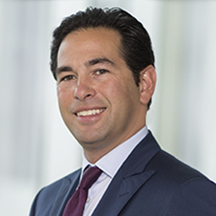

Alzheimer’s FAQs (2/3): How soon should my family or friends see a doctor for memory loss?
by PNI Experts
An estimated 6.2 million Americans age 65 and older are living with Alzheimer’s dementia—a figure expected to triple by 2050. In this three-part blog series, Scott Kaiser, MD, and Mihae Kim, AGNP-BC, answer the frequently asked questions about confronting Alzheimer’s disease.
When in doubt, check it out
When it comes to memory concerns, for a number of reasons, typically the sooner these can be evaluated the better. For one thing, for the many of us that may be perpetually worried about potential memory problems—fearing that every time we misplace our keys we must be experiencing the first signs of dementia—getting evaluated can be a great way to put our minds at ease.
Beyond the benefits of reducing needless worries and unbridled stress—something that is bad for brain health anyway—it can be very helpful to have a “baseline” from which to compare future changes.
The benefits of early detection
Secondly, there are actually a number of potentially “reversible” conditions which may result in memory/cognitive changes (certain vitamin deficiencies, hormonal abnormalities, and medication side effects, for example).
And perhaps most importantly, even when one of these easily treatable conditions may not be discovered, early detection is still the key that opens the door for early intervention.
While there’s no known cure for Alzheimer’s disease the most promising treatments—including diet, exercise, social engagement, and other lifestyle interventions—have the greatest potential for benefit when implemented early.
Preventing serious symptoms
Taking this approach, along with addressing a series of factors that may contribute to poor brain health—high blood pressure, high blood sugar, untreated sleep apnea, insomnia, mood disorders, an autoimmune condition, and other causes of chronic inflammation—may help prevent or delay the onset of serious symptoms.
Along these lines, a variety of resources—from community support programs to clinical trials—may be available to help once an issue has been identified.
Original content was written for the Santa Monica Star newspaper.
More information: 310-582-7641
About Dr. Scott Kaiser

Scott Kaiser, MD, a board-certified family physician, and geriatrician, is the Director of Geriatric Cognitive Health and provides specialty geriatric medical consultations at the Pacific Brain Health Center. Focused on the needs of older patients, he works with his colleagues to provide an integrated and holistic approach to their cognitive challenges. With this “whole person” approach, Dr. Kaiser works to connect patients and their families with a broad range of resources to support their overall health and well-being.
About Mihae Kim, AGNP-BC

Mihae Kim, AGNP-BC, is an Adult Gerontology Nurse Practitioner specializing in the care of Alzheimer’s disease and other dementias. As a Dementia Care Nurse Practitioner at Pacific Brain Health Center, Mihae works closely with physicians and other multidisciplinary team members to provide a collaborative approach to managing these neurodegenerative disorders. Mihae helps patients and their families navigate their difficult journey by creating mutual goals and roadmaps through clinical evaluation, as well as providing guidance with medical, behavioral and psychosocial recommendations.
Related Links:
About the Author
PNI Experts
Last updated: April 21st, 2022
